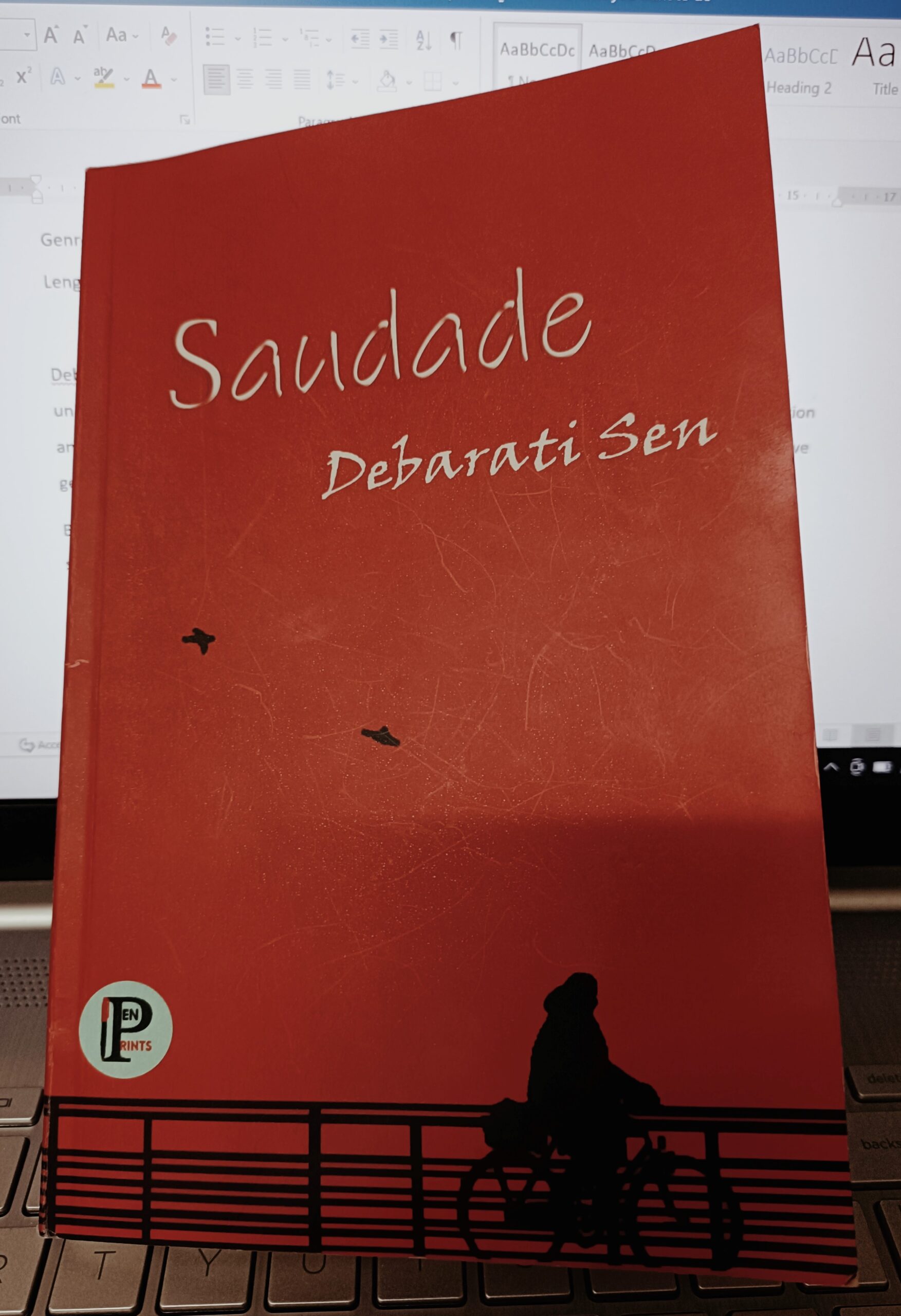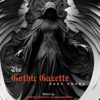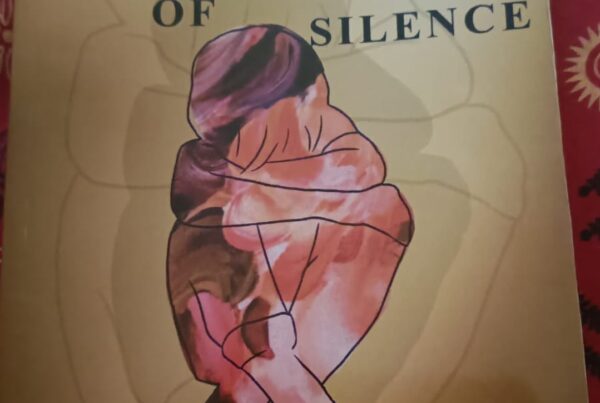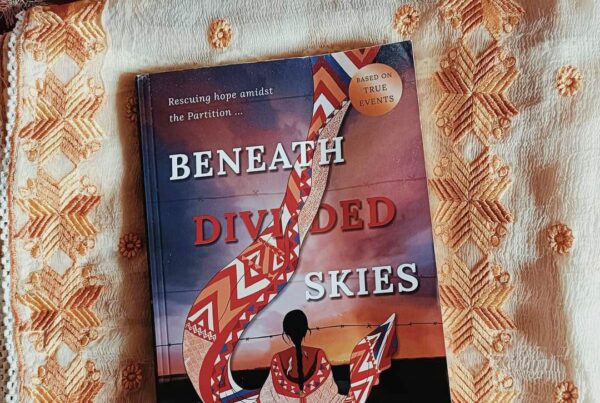Book: Saudade
Author: Debarati Sen
Genre: Poetry
Length: 46 pages, 25 poems
Debarati Sen’s second literary outing grabs the reader’s attention at the very onset, thanks to its unique and lyrical title, Saudade. Truth be told, I had to Google to understand the exact connotation and ken of the word ‘saudade’. And true to its meaning, Saudade offers us a bouquet of twenty-five gems of poetry, soused in melancholic yearning.
By the poet’s own admission in the Foreword and the Preface, she has suffered a few personal setbacks in recent years. The intense emotional upheaval she experienced therein, have considerably shaped her poetic credo and found a voice in this anthology. The poems here are largely in the form of free verse having no standard length, pattern, rhyme or metre. They are an expression of the poet’s innermost musing, longing and rankling. They attempt to break free of all conventional poetic metaphors and have a highly experimental, innovative tone and tenor.
The most striking feature of this anthology is the language used here. Debarati Sen has an enviable and evocative vocabulary that does complete justice to her creative outpouring. The poems are a treasure trove of varied literary devices like the metaphor, simile, imagery, transferred epithet, personification and more. Together, they effectively convey the stream of consciousness kind of narrative voice that she has chosen. This voice is, at once, both personal and profound. Many of the expressions are unique and thought-provoking – they compel the reader to peel the superficial layers of meaning and examine the core of the thought. The opening number, also called Saudade, sets the ball rolling. To quote a few such expressions:
**… In search of lambent metaphors in forlorn corners
I genuflect to verses and verisimilitude.
**…toluene flames of quietude
**…swallow it with my tablet of grief this morning
**…hiding Saudade amidst my periwinkle rhymes
* *Half-eaten ramblings filled my dinner plate.
While you merrily devoured on sausages barbequed from my flesh.
* * She bit her tongue and gulped the storm
That carried the grey wraith of paranoia.
The predominant themes are loss of love and hope, longing, broken relationships, mental afflictions, and a yawning sense of waste and emptiness. Often, very abstract words are juxtaposed with mundane, prosaic ones, thus heightening the impact of the lines. For example:
* I tried hard to pour life out of an aluminium kettle
but it spilled from the sides
and messed up my life’s filigree.
* Parable of forsaken dreams heap once again at my study table
Enchanted by an alchemy of reminiscence.
A yearning for the old, familiar faces and the long-lost joys of the past, are reflected in Metonymy for Life and Time’s Tentacles. In Forlorn Place and An Ivory Song, Ms Sen pens a lament for a nameless land, probably once her safe space, that has now metamorphosed into a cold, distant, unrecognisable terrain that leaves her feeling suffocated and heartbroken.
Many of the poems abound in a deep understanding of life and its vagaries:
* Life is a conundrum
but we must move on
Shaking off problems like the little girl shaking off the sand from her sandal.
* We are but biological robots with consciousness
Constantly fighting a battle between the ‘self’ and ‘other’.
While natural beauty and season changes have been effusively described in several poems, Genealogy of Ruin is a powerful condemnation of the ecological destruction we, humans, wreak. If Ms Sen asserts her fiercely feminine voice in Being Feminine, her love for her own City of Joy and its pulse, is tenderly portrayed in Rendition.
Mental health conditions are probably an area that the poet has observed from very close quarters. Her agony, and her helplessness to address the same, reach out to us in pieces like Paranoia, Harmony in Discord and A Cryptic maze.
As a theme, unfulfilled love and all associated yearnings, memories and musings occupy centrestage in most of the poems. Through her exquisitely crafted metaphors and surreal imagery, Debarati Sen makes us feel the twinge of a broken, pining heart.
Among these 25 soul-stirring pieces, a few that I found particularly moving are – Saudade, An Autumn Farewell, Peonies of Poesy, Time’s Tentacles, Half-Eaten Ramblings, I Hide Consonants Under Broken Fingernails and A Rendezvous with Memory.
Saudade, as an anthology, is not meant for a quick, casual read – it needs to be savoured with a calm, focussed mind at an unhurried pace. It is a delight for all aficionados of serious poetry. Having said that, I would have preferred having a few…just a few…slightly simpler, lighter numbers in this august collection which could be read, comprehended, and appreciated by readers, at large, irrespective of their literary leanings or strengths.
Debarati Sen’s anthology offers a peek into the expansive spectrum of human emotion and experience that we can all identify with. It is an apt testimony to our unsettling times and its multi-dimensional impact on our soul. Her words contain a wealth of both sensory and cerebral gratification. I strongly recommend this collection to every discerning logophile looking for an immersive poetry reading experience.









